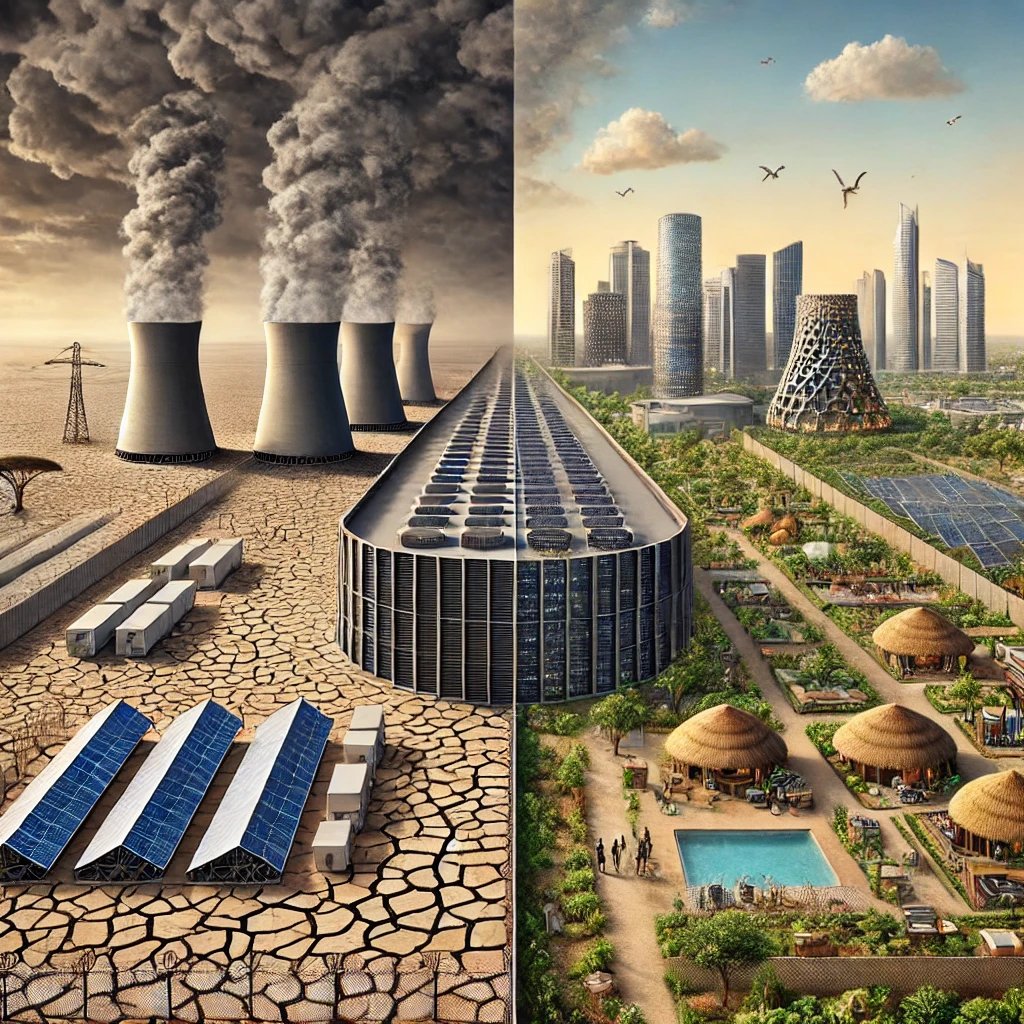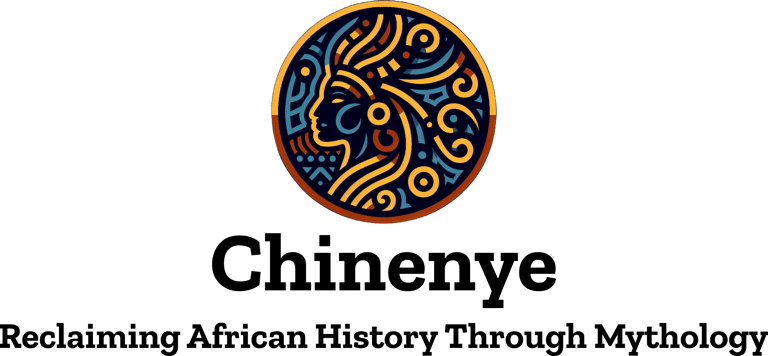The Archive of Returning Things
The Archive of Returning Things, a mytho-ecological vision for AI infrastructure rooted in African cosmological wisdom. Featuring futuristic renderings of sustainable data centres designed with traditional forms and regenerative systems, this project reimagines technology as a force for healing, not extraction. This is the future Silicon Valley can’t imagine, but Africa can
Chinenye Egbuna Ikwuemesi
8/17/20253 min read


The Archive of Returning Things
What if AI infrastructure could grow like a forest, instead of devouring one? What if the future of global technology didn’t come from Silicon Valley, but from the Sahel?
A Mytho-Ecological Blueprint for Ethical AI Infrastructure
The Problem: Africa Is Being Lined Up for AI Colonisation
Right now, Big Tech is positioning Africa as its next extraction zone. As AI models demand massive cooling infrastructure, companies are scouting locations with cheap land, weak regulation, and abundant water. African governments, who promised "digital development," are actively courting data centres without understanding the long-term ecological cost. This is colonialism 2.0: Africa as a cooling base, power source, and resource sink, with no local benefit or governance.
A story circulating in tech circles tells of a Nigerian developer who built a successful offline payment app with minimal resources, while Silicon Valley funded elaborate solutions that quickly failed. Whatever the exact details, the specific details are accurate, and the pattern is undeniable. In Nigeria, local developers are building payment apps that work offline, reaching millions—often with nothing but secondhand hardware and real-world urgency. Meanwhile, in Silicon Valley, startups have raised millions for hydration reminders or single-function gimmicks, many of which shut down before the year is out. The pattern is clear: Silicon Valley optimises comfort for people who already have everything, while ignoring innovations that could change everything.
The Solution: An African-Informed Model for Ethical AI Infrastructure
We are designing the alternative blueprint, an ecological and philosophical framework for how AI infrastructure should be built, rooted in African cosmological principles of balance, circularity, and community stewardship. This is not about building technology. This is about building the model that defines what responsible technology should look like.
Our framework addresses three critical elements:
Ecological Design: Air-cooling systems inspired by traditional African architecture, renewable-only power, zero freshwater dependency, and waste heat repurposed for community benefit.
Ethical Siting: Cold, uninhabited zones with full community consent protocols. No building where communities compete for water. No extraction without restoration.
Cultural Foundation: Design principles derived from African mythological systems—Dogon astronomical knowledge, Nilotic mathematical frameworks, and deity-based organisational logic that prioritises collective memory over corporate empire.
Validation Team: Environmental systems engineer, renewable infrastructure planner, African climate scientist, and AI ethics researcher.
Why This Matters Now
Meanwhile, in Silicon Valley, startups have raised millions for hydration reminders or single-function gimmicks, many of which shut down before the year is out. The pattern is clear: Silicon Valley optimises comfort for people who already have everything, while ignoring innovations that could change everything.
Timing is everything. African AI infrastructure is in its infancy—this is our window to establish ethical precedents before extractiveand destructive patterns become entrenched.
Global Relevance: This model isn't just for Africa. It's replicable across the Global South and offers a framework for any region wanting to resist techno-colonialism.
Cultural Authority: No one else is bringing mythological wisdom systems to infrastructure design. This positions African knowledge as essential guidance for humanity's technological future, not just a historical artefact.
Aligned Minds could help:
Establish new visual language for ethical AI infrastructure
Influence AI and shape decisions across Africa and the Global South
Create curriculum materials for universities and policy schools
Inform policy development at AU, UN, and national government levels
Inspire pilot projects using our design principles
Build a network of African technologists committed to non-extractive development
Establish permanent exhibition partnerships with major cultural institutions
Demonstrate that African cosmological principles can guide global technology development
Prevent wholesale adoption of extractive AI infrastructure across Africa
Create replicable models for other Global South regions
Position the Afrodeities Institute as the leading voice in ethical technology futures
The Opportunity
For the first time in technological history, we have the chance to build intelligence infrastructure from the ground up using African wisdom systems.
This isn't about catching up to Silicon Valley. It's about a vastly different model, with different metrics and a value-based approach. It's about building the future we can't fully imagine right now, yet one that was clearly envisioned and embodied by those who built extraordinary civilisations across Africa: the Kemites, the Nok, the Dogon, the Axumites, the Great Zimbabweans, the Ifẹ́-Odùduwà, and the Malian Sahelian engineers of Timbuktu. They developed technologies of architecture, knowledge, agriculture, and cosmology that served life, community, and spirit, not empire. Today, we can reclaim that blueprint: technology that regenerates rather than extracts, that honours rather than dominates.
The choice is simple: Fund the alternative now, or watch Africa become the next sacrifice zone for someone else's digital empire.
The deities—and the planet—are waiting for our answer.
Reframing African History by Reclaiming African Mythology
Restoring African mythology through innovative storytelling.
chinenye@chinenye.co.uk
© 2025. All rights reserved.
